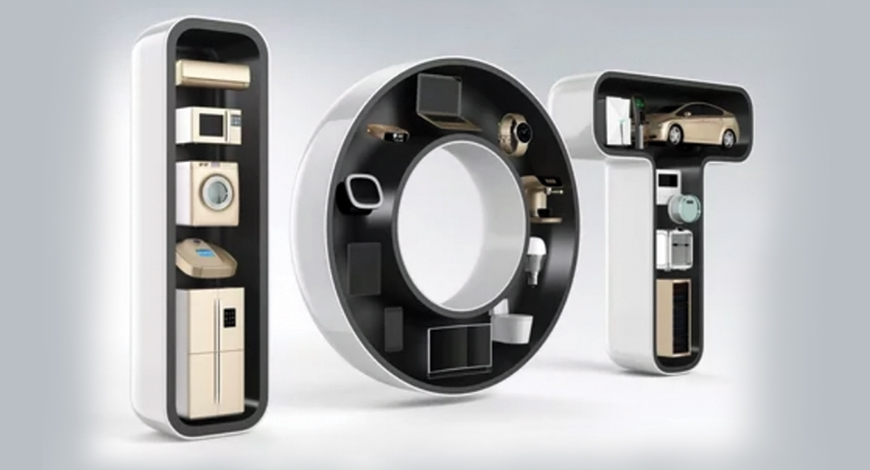CT Stories
The Indian telcos look ahead at a data driven path to growth

It promises to be a transformative industrial revolution for companies, changing the way they think about resource allocation, production processes, materials handling, and the workforce, thereby opening a new era of economic growth and competitiveness.
And realising this, the Indian telcos see it as a second chance to spring into action. If they can capitalize on IoT, they put themselves in the running for huge potential profits in a cellular connectivity-based IoT market, forecast to grow to ₹10,000 crore by 2022, with its global counterpart projected at USD 600 billion. Through high-end IoT services based on excellent connectivity, telcos can set themselves up to enter the most valuable market to hit the industry in a very long time.
 Ravinder Takkar
Ravinder Takkar
MD & CEO
Vodafone Idea Limited
The launch of Vi Integrated IoT Solutions is a strategic step toward making Vi Business an IoT ecosystem integrator for Indian enterprises and positioning Vi to have an ecosystem play driving our transformation from a Telco to TechCo.”
 Ajay Chitkara
Ajay Chitkara
Director and CEO-Airtel Business
Bharti Airtel Limited
“Enterprises have three key requirements for IoT. First, connectivity solutions that future proof their device and application investments. Second, the security of their data. And third, seamless integration with existing IT systems to make the IoT data actionable. Airtel IoT is built on these insights to massively simplify the loT journeys of enterprises.”
No doubt it is a departure from their traditional business. They will need to first capitalize on their existing strength, connectivity, before tackling higher levels of the IoT value stack.
Telcos are already in a trusted provider position. Millennials associate telcos with the mobile phone that has been their constant companion over the years—one that works reliably and consistently. They also have a billing relationship with their telco of choice, adding to the basis for trust.
Moreover, telcos have not struggled publicly with data privacy issues to the extent some of the technology platform players have.
Their trusted relationships with government, employees, media and analysts, investors, suppliers and partners also put telcos in good stead. Combining this trust in a balanced strategy with growth and profitability will help telcos’ competitive position in an age where agility is the Holy Grail. Moving forward, anonymization, transparency and checkpoints in how they use consumer data will help them maintain their trusted provider status.
Both Vodafone Idea and Bharti Airtel have recently launched IoT platforms, while Reliance Jio is testing its IoT services
Airtel IoT is an end-to-end platform with the capability to connect and manage billions of devices and applications in a highly secure and seamless fashion. At its core is its 5G-ready network that comes with the option to deploy NB-IoT, 4G or 2G connectivity using its e-SIM technology.
It also has a flexible set of APIs to eliminate cumbersome integration journeys and allows enterprises to streamline the process of connecting, collecting, and analysing data through their existing workflow tools. Grade security helps enterprises ensure that their IoT data is safe and available in real time for analytics and service delivery.
MG Motor, Pine Labs, Paytm, Kirloskar, BSES, Genus, and Kent are among the many businesses across manufacturing, logistics, automobiles, BFSI and utilities that are already using Airtel’s IoT solutions.
IoT Solutions from Vi Business, the enterprise arm of Vodafone Idea Ltd offers a secure end-to-end IoT solution that comprises connectivity, hardware, network, application, analytics, security and support.
Recognising the challenges faced by enterprises in conceptualising, designing and deploying IoT as a strategic driver the telco plans to adopt a consulting-led engagement to support businesses in identifying their needs, design and develop the right IoT solution and implementation. It aims to provide with a tailored solution to be integrated with the best-in-class enterprise-grade IoT framework.
Reliance Jio Infocomm Ltd. is in dialogue with OEMs to launch its IoT services in the country. In partnership with Samsung, its pan-India network, based on narrowband IoT technology with device, diagnostics, connectivity, platform and support is operational.
India had around 200-250 million connected devices by the end of 2019, and this number is expected to touch 2 billion by 2021. Spending on software and hardware related to IoT projected to grow rapidly is estimated as USD 20.6 billion in 2019 in India.
There has been a massive growth in IoT adoption in the last three years. Manufacturing, automotive and transportation, and energy and utilities are the top three verticals driving adoption. With the upcoming launch of 5G and focus on edge computing, Indian telcos stand to provide high-end and high-margin IoT services to enterprises.
It however demands a deep understanding of the different industry verticals. The current focus on IoT is possibly part of a long-term strategy to gain insights and develop high-end use cases for different segments.
After Covid-19, the focus is on conserving cash in India and Deloitte estimates a de-growth in 2020, possibly going into the first half of 2021. Growth after the second half of 2021 is expected to be much faster after Covid-19 vaccination is widespread.















You must be logged in to post a comment Login